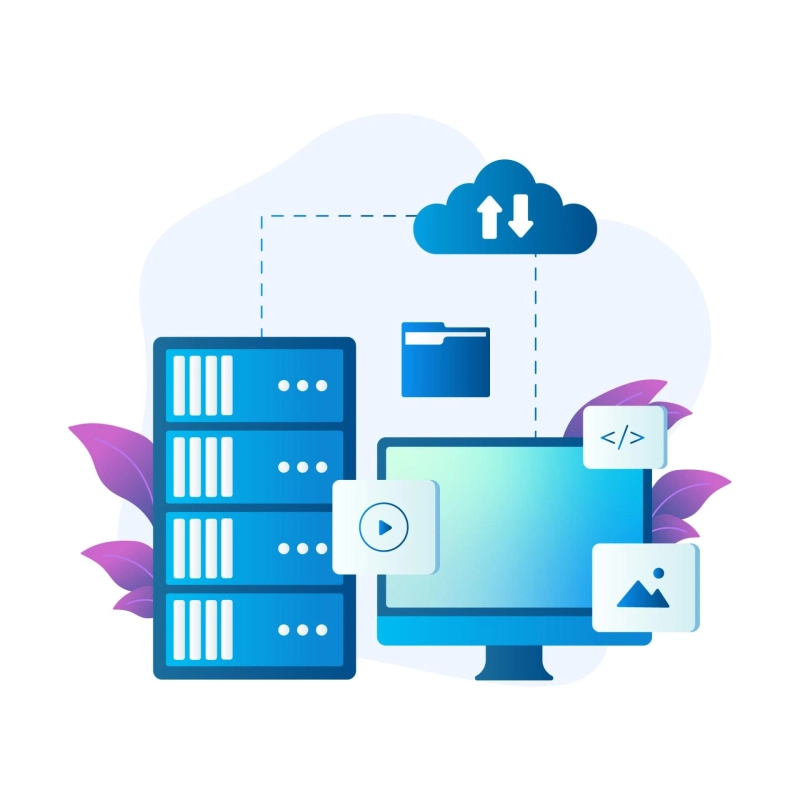Stay ahead of the curve and ensure your business's longevity by harnessing the power of cloud computing. Embrace the future with seamless scalability and enhanced efficiency.
In today's rapidly evolving digital landscape, businesses face constant challenges to stay ahead of the curve and remain competitive. To achieve long-term success, it's essential to future-proof your business and embrace innovative technologies. One such technology that has revolutionized the business world is cloud computing.
Benefits of Cloud Computing
Cloud computing offers numerous benefits that can significantly impact businesses of all sizes. First and foremost, it provides cost efficiency and scalability. With cloud solutions, businesses can access and pay for resources on-demand, eliminating the need for large upfront investments in infrastructure. This scalability allows businesses to scale their operations up or down as needed, ensuring optimal resource utilization and cost savings.
Another advantage of cloud computing is increased flexibility and agility. Cloud solutions enable remote access to data and applications, allowing employees to work from anywhere, anytime. This flexibility fosters collaboration and improves productivity. Additionally, cloud platforms offer rapid deployment of new services, enabling businesses to quickly respond to market demands and gain a competitive edge.
Furthermore, cloud computing enhances security and data protection. Cloud service providers invest heavily in robust security measures, ensuring that sensitive business data remains safe and secure. Data backups, disaster recovery, and encryption are standard practices in cloud environments, mitigating the risk of data loss or breaches.
Cloud Computing Solutions for Businesses
Businesses have various cloud computing solutions to choose from, depending on their specific needs. Infrastructure as a Service (IaaS) provides virtualized computing resources, such as virtual machines, storage, and networks, allowing businesses to build their own IT infrastructure in the cloud. Platform as a Service (PaaS) offers a development platform with tools and services for building, testing, and deploying applications. Software as a Service (SaaS) delivers fully functional software applications over the internet, eliminating the need for local installations.
Moreover, businesses can adopt hybrid and multi-cloud approaches to leverage the benefits of different cloud models. Hybrid cloud combines public and private clouds, allowing businesses to take advantage of the scalability and cost-efficiency of public clouds while keeping sensitive data on a private infrastructure. Multi-cloud strategies involve using multiple cloud providers to avoid vendor lock-in and optimize performance and cost.
Future Trends in Cloud Computing
As technology continues to evolve, new trends emerge in the field of cloud computing. One such trend is edge computing, which brings computing power closer to the data source. By processing data at the edge of the network, businesses can reduce latency and improve real-time decision-making. Edge computing also plays a crucial role in the integration of Internet of Things (IoT) devices, enabling efficient data processing and analysis in IoT applications.
Another significant trend is the integration of artificial intelligence (AI) and machine learning (ML) with cloud computing. AI and ML algorithms require vast computational resources, which can be efficiently provided by the cloud. Cloud-based AI services enable businesses to leverage advanced analytics, predictive modeling, and automation, empowering them to make data-driven decisions and deliver personalized experiences to customers.
Additionally, serverless computing has gained popularity in recent years. In this model, businesses do not need to provision or manage servers; instead, they focus on writing and deploying code. Serverless architectures are highly scalable, cost-effective, and enable rapid development and deployment of applications.
Challenges and Considerations
While cloud computing offers numerous benefits, it's crucial to consider the challenges and potential risks associated with its adoption. Data privacy and compliance are critical concerns, particularly for businesses handling sensitive information. Organizations must ensure that their cloud providers adhere to relevant data protection regulations and have robust security measures in place.
Vendor lock-in and migration challenges are also worth considering. Switching cloud providers or migrating between cloud environments can be complex and time-consuming. Businesses need to carefully evaluate their needs, consider portability options, and plan for possible migration scenarios to avoid vendor lock-in and ensure future flexibility.
Cybersecurity risks pose another challenge in the cloud computing landscape. Businesses must implement robust security measures, such as access controls, encryption, and intrusion detection systems, to protect their data and applications. Regular security audits, vulnerability assessments, and employee training are essential to mitigate risks and stay ahead of potential threats.
Conclusion
In the fast-paced digital landscape, future-proofing your business is crucial for long-term success. Cloud computing offers numerous benefits, including cost efficiency, scalability, flexibility, and enhanced security. By embracing the cloud revolution, businesses can adapt to evolving technologies, stay competitive, and drive innovation. Assess your business needs, choose the right cloud solutions, develop a migration strategy, and ensure ongoing optimization to future-proof your business and unlock its full potential.
Frequently Asked Questions (FAQs)
Q: What is cloud computing?
A: Cloud computing refers to the delivery of computing resources, such as servers, storage, databases, software, and analytics, over the internet. It enables businesses to access and use these resources on-demand, without the need for local infrastructure.
Q: How does cloud computing benefit businesses?
A: Cloud computing offers cost efficiency, scalability, flexibility, and enhanced security. It allows businesses to reduce IT costs, quickly scale their operations, access resources from anywhere, and leverage robust security measures provided by cloud service providers.
Q: What are the different types of cloud computing solutions?
A: The three main types of cloud computing solutions are Infrastructure as a Service (IaaS), Platform as a Service (PaaS), and Software as a Service (SaaS). Each type offers different levels of control and management for businesses.
Q: How can businesses address data privacy and security concerns in the cloud?
A: Businesses should carefully choose cloud providers that prioritize data privacy and have robust security measures in place. Implementing encryption, access controls, and regular security audits can help mitigate risks and protect sensitive information.


